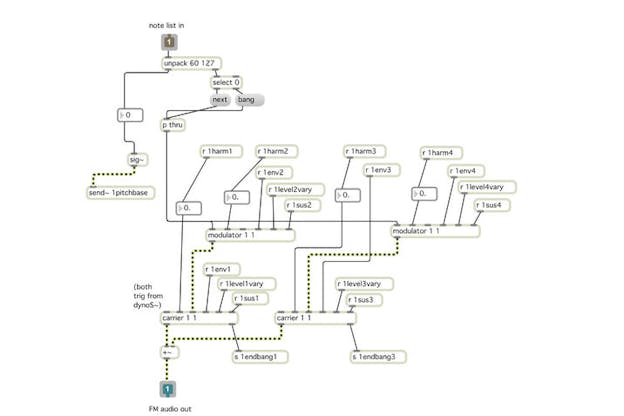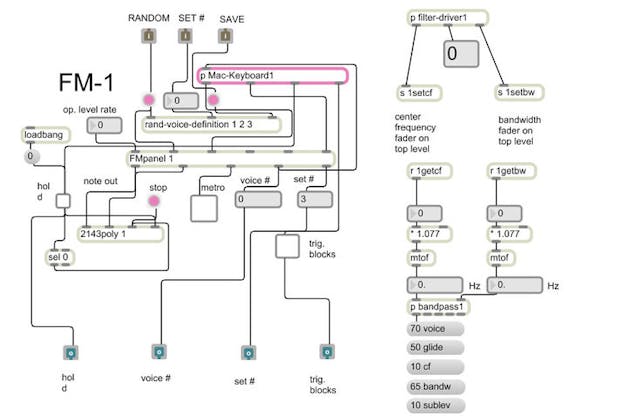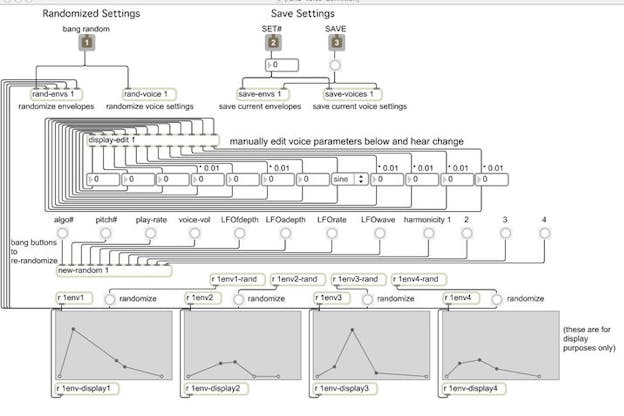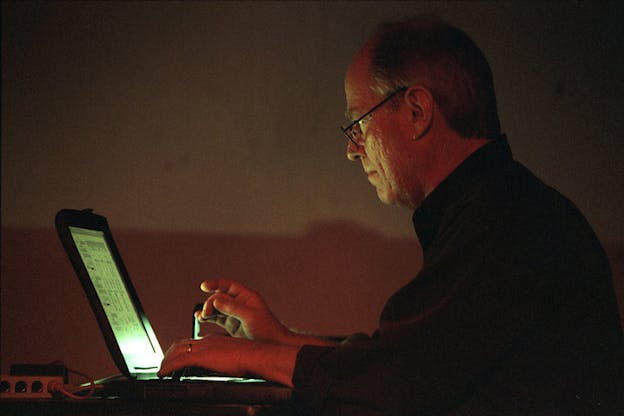John Bischoff
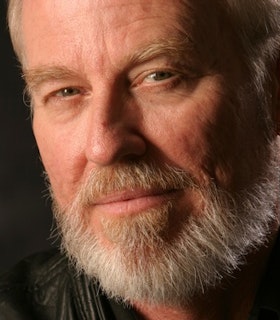
[FCPA] grant funds helped me to purchase important computer software used in these projects as well as a small number of hardware accessories that were critical to the work.
- John Bischoff, December 13, 2000
Artist Statement
For over 30 years my composing activities have centered on two parallel paths: the creation of electronic works for solo performers, and the development of a new form of collaborative ensemble music called computer network music. Both paths have enhanced and influenced each other, as ideas and techniques discovered in one have been adapted for use in the other, and vice versa. The aesthetic trajectory of my work can be seen as a development of approaches begun by David Tudor, Gordon Mumma, and David Behrman, electronic music composers active in the American Experimental tradition starting in the 1960s. These composers used the electronic tools available to build semi-autonomous musical entities that they interacted with in performance. Likewise, my solo works cast similar dynamics into the form of computer programs that I've written, which generate sound automatically in performance and allow for change in direction under partial control of a performer. Through the many technological shifts in the ensuing years, I have pursued these lively and interactive performance qualities using computer-based systems, whatever new form they have taken. The result is a music built from the intrinsic features of whatever electronic medium is at hand: high definition noise components, tonal edges, digital shading, and non-linear motion, all evolving in the variable context of live performance.
In recent years, my work has focused particularly on integrating sound sources external to the computer into tandem musical relationship with the laptop realm. The sources I have employed include amplified small objects and custom analog circuits of my own design. In these solo pieces, the detailed nature of the performer's improvisatory actions—the initiation of sound events, the timing between them, and their sonic character—are analyzed in real-time and used to inform a computer-generated audio response.
These recent works suggest new, uniquely electronic, ways of structuring music. One can view the compositional structure as a circular system of influence: sounds initiated by the performer trigger the construction of a digital musical landscape, which then provides a setting within which the performer makes further sounds, which in turn further influences the construction process, and so on. The resulting counterpoint between the physically mediated and digital synthesized sources creates a unifying force between the divergent qualities of both streams. As performed actions are recapitulated and reflected in the laptop domain, I hope to accomplish a new kind of integration of human, analog, and digital spaces in which a larger physical unity prevails.
- 2014
Biography
John Bischoff has been active in the experimental music scene in the San Francisco Bay Area for over 35 years as a composer, performer, and teacher. He is known for his solo constructions in real-time synthesis and the development of computer network music.
Bischoff has performed internationally at venues and festivals including the Festival d'Automne, Paris; Akademie der Künst, Berlin; Fylkingen, Stockholm; T-U-B-E, Munich; World Music Concert Series at Wesleyan University; Roulette; and Experimental Intermedia. In 1978, Bischoff founded The League of Automatic Music Composers, considered to be the world's first computer network band, with Jim Horton and Rich Gold. He is also a founding member of the computer network band The Hub, established in 1987.
Bischoff's 2003 release Aperture included two live computer music works composed with the support of his 1999 FCPA grant funds: Graviton and Interlude. Two retrospective CD packages documenting computer network music were released in 2007 and 2008: The League of Automatic Music Composers: 1978-1983 and a three-CD set of recordings by The Hub titled Boundary Layer. Recordings of Bischoff's work are also available on Tzadik, 23Five, Lovely Music, Centaur, and Artifact Recordings. Bischoff's solo CD titled Audio Combine was released in 2012 on New World Records.
Subsequent to his 1999 Grants to Artists award, Bischoff was named a recipient of an Alpert/Ucross Residency Fellowship in 2002. Bischoff earned a B.F.A. in Music Composition from the California Institute of the Arts. In 1973 he received an M.F.A. in Electronic Music and Recording Media from Mills College, where he is an Associate Professor of Music. He studied composition with Robert Moran, James Tenney, Robert Ashley, and David Behrman.
